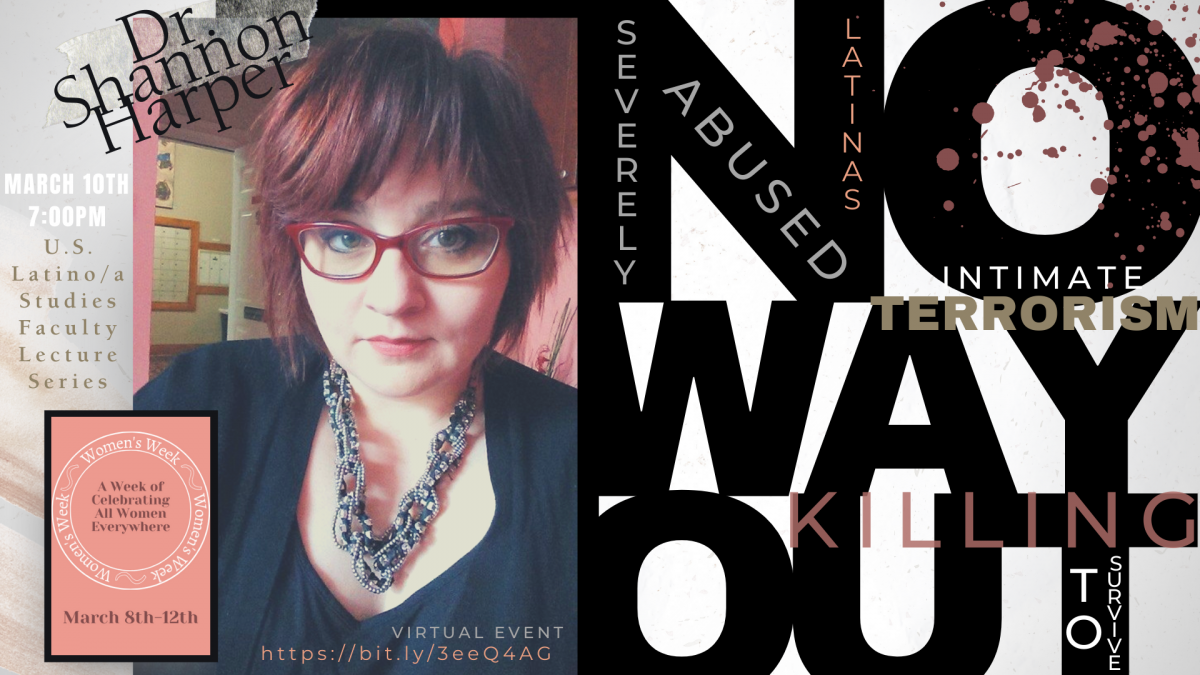No Way Out: Severely Abused Latinas, Intimate Terrorism, and Killing to Survive
- U.S. Latino/a Studies
- Women's Week 2021
- Committee on Lectures (funded by Student Government)

Recording Link: https://iastate.hosted.panopto.com/Panopto/Pages/Viewer.aspx?id=0b6e0d5c-026e-4d62-ab89-ace900100539
U.S. Latino/a Studies Faculty Lecture Series, Spring 2021
Domestic violence (DV), primarily severe/terroristic DV, is one of the primary catalysts for intimate partner homicide (IPH) offending and victimization. Latinas experience disproportionately high rates of abuse and IPH victimization when compared to other racial/ethnic groups; however, they are less likely to kill their abusers in self-defense (i.e., self-help homicide). This disparity is surprising given their experiences of racism/discrimination and diminished access to structural resources (e.g., employment, income, DV resources) typically increase the likelihood of self-help homicide. This presentation will focus on Latinas’ unique low rate of IPH offending when compared to other racial/ethnic groups. We will explore how structural (e.g., poverty), institutional (e.g., immigration enforcement), and cultural factors (e.g., strong familial ties) shape their experiences of abuse and homicide. I argue that Latinas become entrapped within terroristic abusive relationships with limited options for assistance, escape, and survival. Such entrapment limits their capacity to self-protect against violence, including killing to survive, leaving them with “no way out.”
Dr. Shannon B. Harper is an Assistant Professor of criminal justice in the Department of Sociology and U.S. Latino/a Studies Program at Iowa State University. Dr. Harper’s research explores the relationship between domestic violence and intimate partner homicide and the gendered contexts through which both occur. She examines the neighborhood social and structural factors that influence IPH, as well as how the criminal justice system and community resources operate to address it and the abuse that precipitates it. Dr. Harper’s work also investigates how race/ethnicity, class, culture, gender, and other identities intersect to shape the severe DV experiences of survivors who are marginalized. Her published works can be found in multiple peer-reviewed journals and edited volumes.